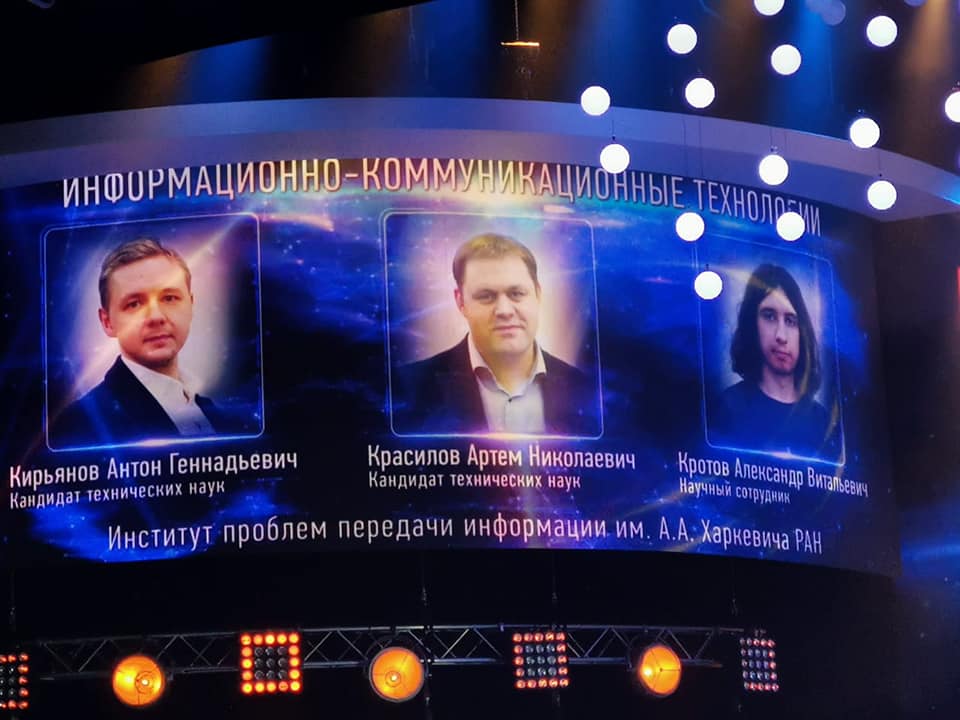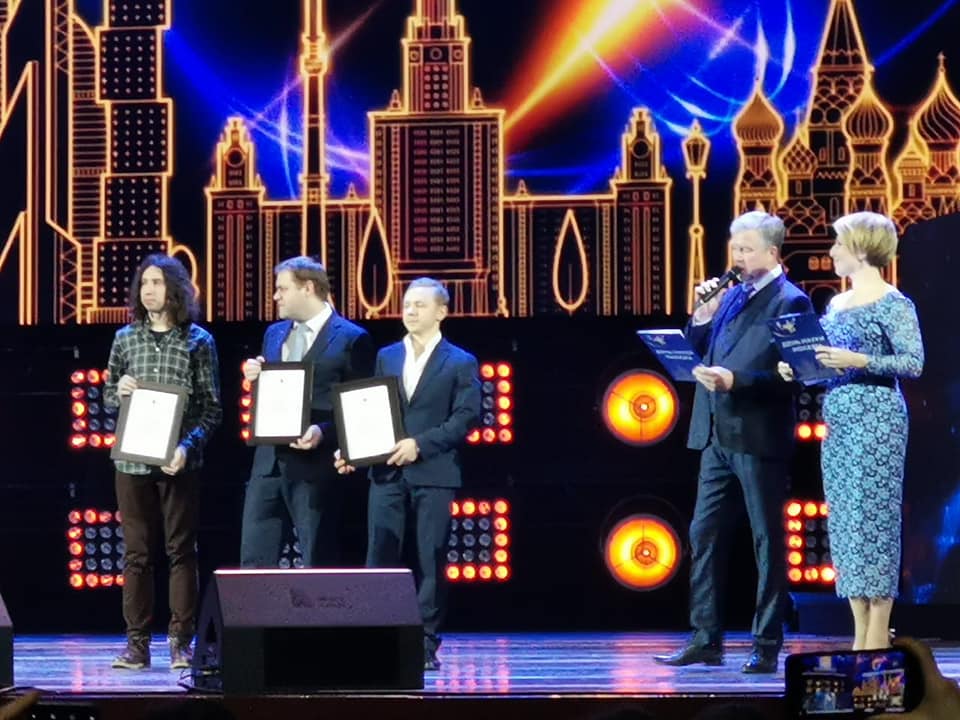Researchers of Wireless Networks Lab Receive Prestigious Moscow Government Award for Young Scientists 2018
Researchers of the Wireless Networks Lab Anton Kiryanov, Artem Krasilov, and Alexander Krotov have received a prestigious award from Moscow Government for their outstanding results in communication technologies. They have developed and studied novel methods improving the performance of the next generation wireless networks under high load and high user density.

Today wireless technologies play a key role in economics and social life. User demands are continuously growing, which increases both the number of connected user devices and the number of wireless base stations. Currently, research community and industry are developing next-generation wireless technologies, which includes the fifth generation of cellular communications (5G) and the next generation of Wi-Fi technology (IEEE 802.11ax standard, extremely high throughput, etc.).
The main challenges related to next-generation networks are connected to the extremely high density of devices and traffic heterogeneity. The high density of user devices and the increasing number of wireless access points significantly reduces the capacity of wireless networks. It is caused by several factors: transmitted signals interfere with each other; devices constantly switch access points when they measure the approximately equal signal strength from different access points; different software versions and configurations result in the reduction of the network efficiency. Traffic heterogeneity means that next-generation wireless networks will serve heterogeneous traffic generated by various devices and applications, and each traffic type has specific Quality of Service (QoS) requirements. For example, a user can download or upload files, web pages, multimedia streams from services such as YouTube, Netflix etc. The number of Internet of Things devices, such as sensors, surveillance cameras, «smart» watches, locks, refrigerators, continuously increases. High capacity and efficiency of a wireless network with heterogeneous traffic and high user density mean that QoS requirements are satisfied for a maximum number of users.

Researchers of Wireless Networks Lab have developed and studied new resource and traffic management algorithms which take into account traffic type and significantly increase the number of users for which QoS requirements are satisfied. With analytical modeling and simulations, they have evaluated the efficiency of the proposed solutions and developed novel methods to optimize their performance. Results are published in the journals with high impact factor (e.g., IEEE Communications Surveys & Tutorials, IEEE Network, Computer Communications) and presented at highly-reputed conferences such as IEEE ICC, IEEE GLOBECOM, IEEE WoWMoM, IEEE PIMCC, etc. The research was supported by the Russian Science Foundation, Russian Foundation for Basic Research, and the Russian Government in the framework of “Megagrant” program. In addition, research has received multiple awards, including Best Paper Award (ISWCS, 2012), Best Cited Review Paper (Computer Communications, 2018), Best Cooperation Project from Huawei Technologies in 2015, 2017, 2018.
The usage of the developed methods in practice will significantly increase the capacity of the next generation wireless networks with heterogeneous traffic. Some results have already been used for the development of the new Wi-Fi standards (including the IEEE 802.11ax standard) and in the R&D projects done in cooperation with the largest telecommunication equipment manufacturers.
Besides research work, awardees participate in the education process at Moscow Institute of Physics and Technologies (MIPT) where they lecture on modern wireless technologies and supervise students.
